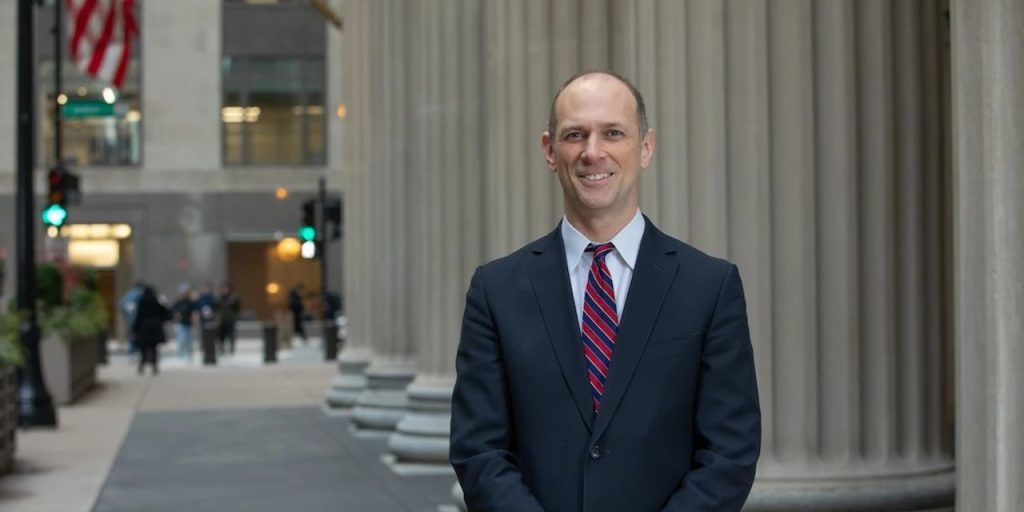The new president of the Chicago Federal Reserve said the central bank needs “to be cautious” about further increases in interest rates in light of the failure of Silicon Valley Bank and the resulting stress on the U.S. financial system.
Austan Goolsbee, who took over the Chicago Fed in January, said the U.S. central bank should proceed with “prudence and patience” until it can determine the extent of the damage to the financial system.
Since the failure of California-based SVB last month, U.S. banks have lost tens of billions in deposits and they’ve sharply scaled back loans to businesses.
If those trends were to continue, they could depress the economy and inadvertently help the Fed in its fight to reduce high inflation.
“Given how uncertainty abounds about where these financial headwinds are going,
I think we need to be cautious,” Goolsbee said in a speech to the Economic Club of Chicago.
“We should gather further data and be careful about raising rates too aggressively until we see how much work the headwinds are doing for us in getting down inflation,” he added.
Goolsbee is a voting member of the Fed’s interest-rate setting panel this year.
The Fed has raised its key short-term U.S. rate to a top end of 5% from nearly zero just a little over a year ago. Higher borrowing costs have started to slow the economy, and in some areas such as housing, the effects have been more dramatic.
Spooked by the banking-system turmoil, the Fed has indicated it might raise rates just once more in 2023.
Goolsbee said tighter standards on lending and borrowing could help to retard inflation, but he warned the threat of financial contagion is too great to ignore.
Yet he also stressed inflation is too high and the Fed has to keep at it until price pressures subside. Inflation has proven especially sticky, he noted, in services such as travel and recreation where higher interest rates are less effective.
“It might take longer to reduce inflation there,” Goolsbee said.
The rate of U.S. inflation hit a 40-year peak of 8.1% last summer before slowing to 6% in February, based on the consumer price index. The next CPI data is due to be published Wednesday morning.
The Fed is aiming to reduce inflation to pre-pandemic levels of 2% or so, but predicts it won’t achieve its goal until 2025 at the earliest.
Before taking over the Chicago Fed, Goolsbee had been a former economic advisor to President Barack Obama. He’s also held a variety of other government and academic roles.
Read the full article here





